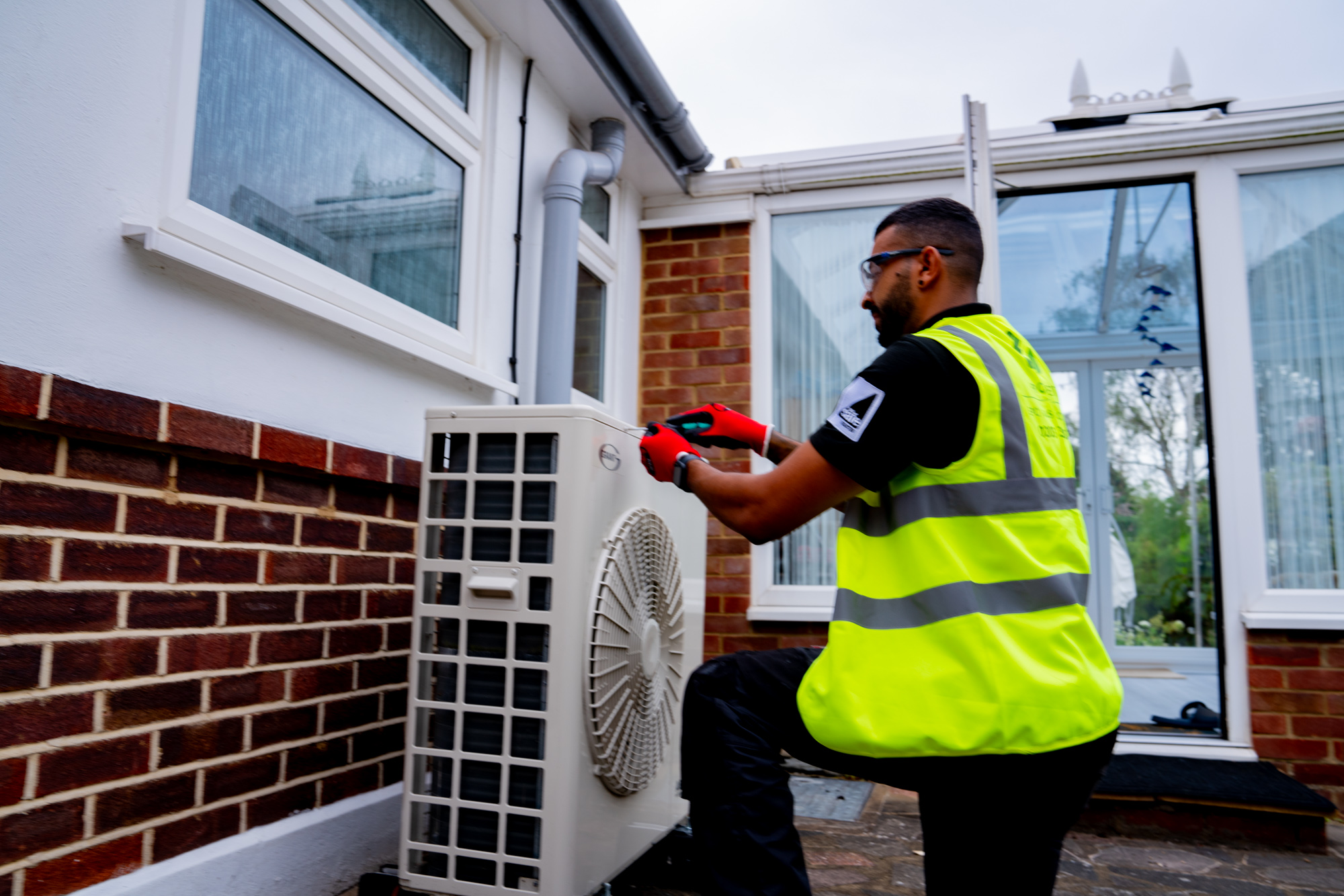When it comes to heating the home, there are eco-friendly options that can be explored. Owners of properties hoping to make a sustainable change to the way their home provides heat may want to consider installing a heat pump.
These heating devices are forecasted to grow in popularity as large commercial landlords and housing associations scramble to reach net zero targets.
Here, we provide a detailed breakdown of how heat pumps work, long-term costs and the impact they have on the environment.
The two types of heat pumps to consider
There are two types of heat pumps that can be installed. Air source heat pumps (ASHP) work by taking heat energy from the outside air, extracting the heat, and using that to warm water in a tank for central heating systems.
Ground source heat pumps (GSHP) work in a similar way but they take heat energy from underground to warm water for heating systems.
Both systems source heat from different locations, but they both serve the same purpose, which is to use natural sources to produce heat. Radiators, water or underfloor heating are some examples of what can be heated using both methods.
According to the Energy Saving Trust, under a quarter of a million UK homes have heat pumps. That is less than 2% of the UK market. However, with government plans to reach net zero and financial support for installations available, these figures are likely to rise in popularity over time..
Save money in the long-term
With air source heat pumps ranging between £1,600 and £18,000 and ground source heat pumps valued between £12,000 to £31,000, discounts are welcome.
The Boiler Upgrade Scheme (BUS) The Boiler Upgrade Scheme (BUS) provides £5,000 off the cost and installation of an air source heat pump and £6,000 off the cost and installation of a ground source heat pump.
Despite the large price tag, these heating systems will save money in the long term. However, the cost of running a heat pump depends on the insulation of the dwelling. Only a small heat pump will be required, which is cheaper to manage, if the property ranks highly when it comes to property insulation.
Which? reports Which? reports that roughly £1,410 a year could be saved by swapping a G-grade boiler with an air source heat pump. With air source heat pumps ranging between £1,600 and £18,000 and ground source heat pumps valued between £12,000 to £31,000, discounts are welcome.
The Boiler Upgrade Scheme (BUS) provides £5,000 off the cost and installation of an air source heat pump and £6,000 off the cost and installation of a ground source heat pump.
Despite the large price tag, these heating systems will save money in the long term. However, the cost of running a heat pump depends on the insulation of the dwelling. Only a small heat pump will be required, which is cheaper to manage, if the property ranks highly when it comes to property insulation.
Which? reports that roughly £1,410 a year could be saved by swapping a G-grade boiler with an air source heat pump.
Meet government net zero plans
To achieve net zero, the government plans to stop new gas boiler installations by 2035.
By replacing a gas boiler with a heat pump, a more environmentally-friendly home or building that aligns with the government’s targets can be achieved.
Local authorities, councils, large commercial landlords, and housing associations are tasked with keeping up with the industry standard. As the market shifts towards eco-friendly practices, heat pumps should be considered.
According to figures from the Ground Source Heat Pump Association, ground source heat pumps are between 300% to 400% efficient. Air source heat pumps were also given a high-efficiency score of 300% on average.
If the installation is carried out by a professional and serviced every 12 months, these typically last for between 20-25 years. Before committing to an installation, be sure to check if planning permission is required.
Here at Propcert, we are a nationwide provider of property services including Energy Performance Certificates, Electrical Installation Condition Reports, Asbestos Surveys, Fire Risk Assessments and more.
For a full list of services please click here and contact us here for any more information on what we provide.
